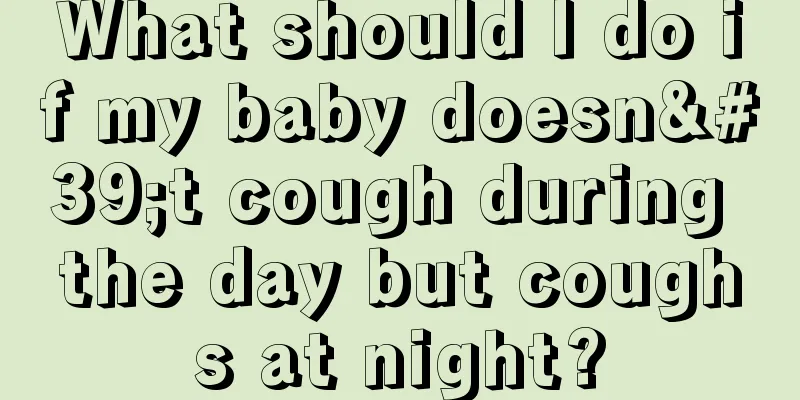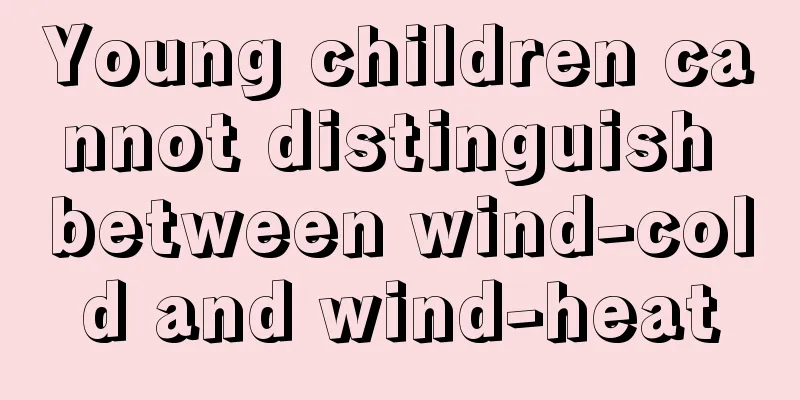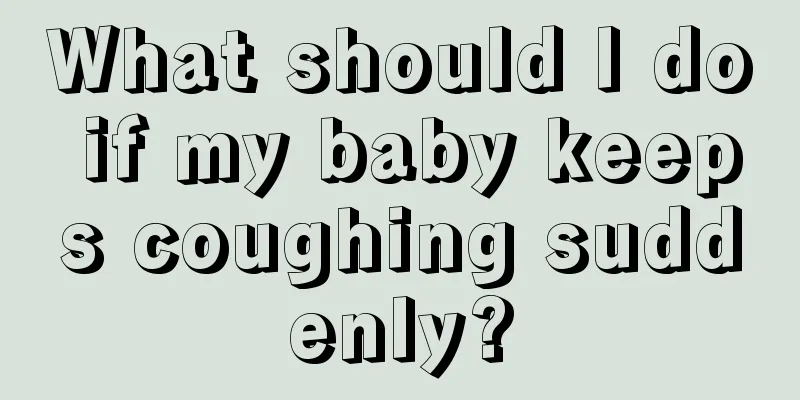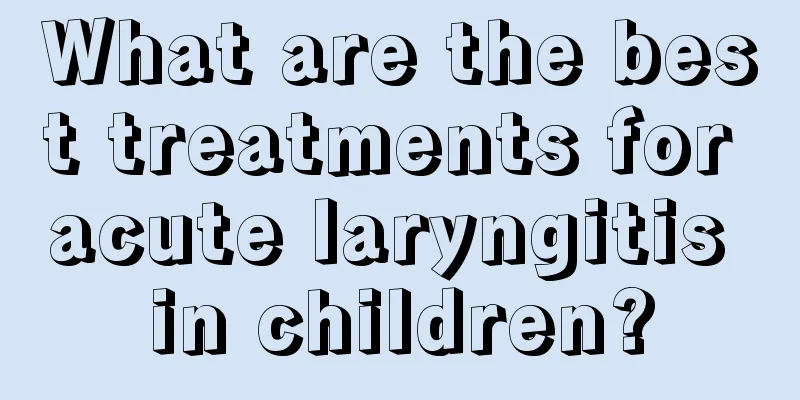What should I do if my baby doesn't cough during the day but coughs at night?

|
There is a reason why your baby doesn't cough during the day but coughs at night. Mainly because children do not exercise at night, the phlegm in the trachea will continue to accumulate and increase. When the body position changes, the movement of the phlegm will stimulate the sensory nerve endings of the trachea and bronchi, which will cause coughing. Because children exercise constantly during the day, there will be no phlegm accumulation, and there will only be occasional coughing. The above situation is mainly related to the inflammation of the respiratory tract that stimulates the secretion of more phlegm. The key to treatment is antibacterial, expectorant, etc. Since the cough only occurs at night, it indicates that the inflammation is not very serious. Oral medication is recommended. You can choose azithromycin, children's lung clearing and phlegm-resolving granules, cough syrup, etc. It usually takes 5-7 days to be completely cured. Drinking plenty of water is the key to care. Baby coughing can be broken down into four actions: 1. Take a short, deep breath; the glottis closes; the diaphragm and intercostal muscles contract, increasing the intrapulmonary pressure; the glottis opens, and the high-pressure air in the lungs is squeezed and ejected due to the rapid contraction of the diaphragm. It is these four consecutive actions that combine to form a complete "coughing" process, and at the same time determine that coughs have different natures, rhythms, sounds and characteristics. 2. Nature of cough: Dry cough or irritating cough: common in upper respiratory tract infection, tracheitis, pneumonia, bronchial foreign body and other diseases. Wet cough or phlegm cough: more common in diseases such as bronchitis, bronchiectasis, lung abscess, tuberculosis, etc. 3. Rhythm of cough: Single cough: common in diseases such as laryngitis and tracheitis. Paroxysmal or spasmodic cough: common in diseases such as tracheal foreign body, whooping cough, bronchial asthma, etc. Periodic cough: common in diseases such as chronic bronchitis and bronchiectasis. 4. Listen to the sound and identify the disease! The baby is so smart. He will look at you with his big eyes to convey his happiness. He can tell you his pain with different cries. He can also remind you through different "coughs", "Mom, I need your help..." The baby's "hollow" cough sounds like a puppy barking. This is a unique manifestation of acute laryngitis! If your baby doesn't cough during the day but coughs at night, it may be due to bronchitis, pharyngitis, or tonsillitis. Mothers should pay more attention to their children's physical condition and eating habits, so as to keep their children away from the symptoms of not coughing during the day but coughing at night, and create a good environment for their children so that they can grow up happier. Mothers should pay attention to the situation where their babies do not cough during the day but cough at night, and treat it with care and not be careless. |
<<: Why does my baby cry at night?
>>: Reasons why babies don't sleep well at night
Recommend
What is the role of trace element testing in children?
Every child should grow up healthy and happy. How...
Prevention of mycoplasma infection in children is like this
Mycoplasma infection in children is mainly a huma...
What should I do if my baby's head is red and swollen?
In daily life, children's genitals will slowl...
What is the order in which deciduous teeth erupt?
For children, the issue of teething is something ...
What should I do if my 4-year-old child has a poor appetite?
Babies' appetite seems to decrease more easil...
Treatment of sinusitis in children
The occurrence of sinusitis in children makes man...
Is it really good to bathe newborn babies frequently?
Many families nowadays have only one child, so th...
Introduction to methods to cultivate children's interest in learning
Of course, parents hope that their children will ...
Symptoms of scrotal edema in newborns
Many parents will notice the phenomenon of scrota...
What is groin pain in children?
Everyone should know that groin pain in children ...
What should I do if my three-year-old child has a high fever?
It is very common for children to have a fever. W...
What are the three symptoms of growing pains in children?
There is a type of children who have a special ph...
Can children wear plasters?
The plasters that are more common in our lives us...
What to do if your two-year-old baby cries in the middle of the night
Many parents are particularly distressed when the...
Can children's true myopia be cured?
In our lives, many children suffer from pseudomyo...









